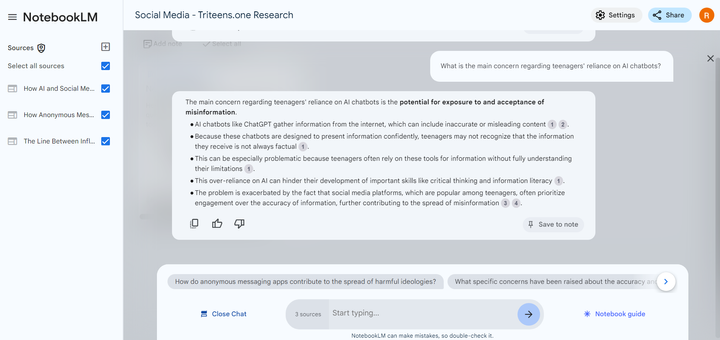How anonymous messaging apps are harming teenagers

Internet messaging is one of the oldest and largest forms of communication and entertainment on the Internet. In this area, new apps are coming out that label themselves as "anonymous" and have become popular among the younger and more tech-obsessed population. Starting with YikYak and Sarahah, these new apps have shown dangerous trends from telling people to kill themselves to bomb threats.
The Main Problems
The first issue with apps of this kind is the fact that it gives teenagers a false sense of security. While these apps may say they are anonymous, there is no way to prove that at the end of the day, as they may very well be storing information that will be given to the government if requested. This same false sense of security encourages bad behavior, as there will be no consequences for the sender as it is "anonymous". This negatively affects teenagers in preparing them for the realities of the internet, because even anonymous messaging can be traced back to them and they can face consequences for their actions.
Another issue is toxicity and lawlessness within these apps, where extremist views are common. Anonymous apps can be sources for recruiting illegal businesses and organizations. They can also push dangerous and often violent ideologies which may cause real-life consequences if the underdeveloped mind of a teenager is exposed to it. Toxic behavior and uncontrolled communication are never okay in real life and when it is done online, it can be just as dangerous as it can be good for example the dark web. In fact, these apps can be step one into getting into what is known as the "deep web" containing far more dangerous things than seen on surface-level sites you may find on Google.
App-by-app Breakdown
Now we will break down some of the most well-known apps and show the positive and negative effects each app can have, and why it becomes a question of where we draw the line. The apps we will go over will be YikYak and 4chan.
To start off we will review YikYak, which is an app that allows people to send messages to everyone within a 5-mile radius of them. This is a great resource for being more open to those around you as all the messages remain anonymous. Although it's only within a 5-mile radius, this app can have severe effects on younger audiences. Imagine if someone said something rude about you, but you look around and you don't even know who said it, it feels like someone is talking behind your back, and you will start to be aware of every stare you get in the halls. This app can reveal people's insecurities and spread toxic behavior among teenagers.
The next app is 4chan, the anonymous image board. This app is a great tool for those who want to engage in valuable conversations and activism without the fear of retaliation. People can use these apps to communicate and spread messages of oppression and their troubles. But this app can also spread extremist views and become recruiting grounds for illegal activities. These sites often can drag people to commit acts of violence and even bring out the worst in people because there is no nametag attached to people's messages. 4chan also has an inherently toxic and often dangerous culture, with borderline connections to the dark web and disturbing images. Often these images can leave a lasting impact on people and cause a lot of trauma.
Conclusion
The creation of anonymous apps, like all types of apps, was initially to promote free conversation without fears of retaliation as well as providing a place where people can express their opinions. But in the end, it has led to a lot of damage including suicide, violence, illegal hacking, and other types of unintended uses. Unfortunately, this is the reality of anonymous messaging, and it can be even worse if you expose teens to this as they are still underdeveloped and are learning about the world around them.



